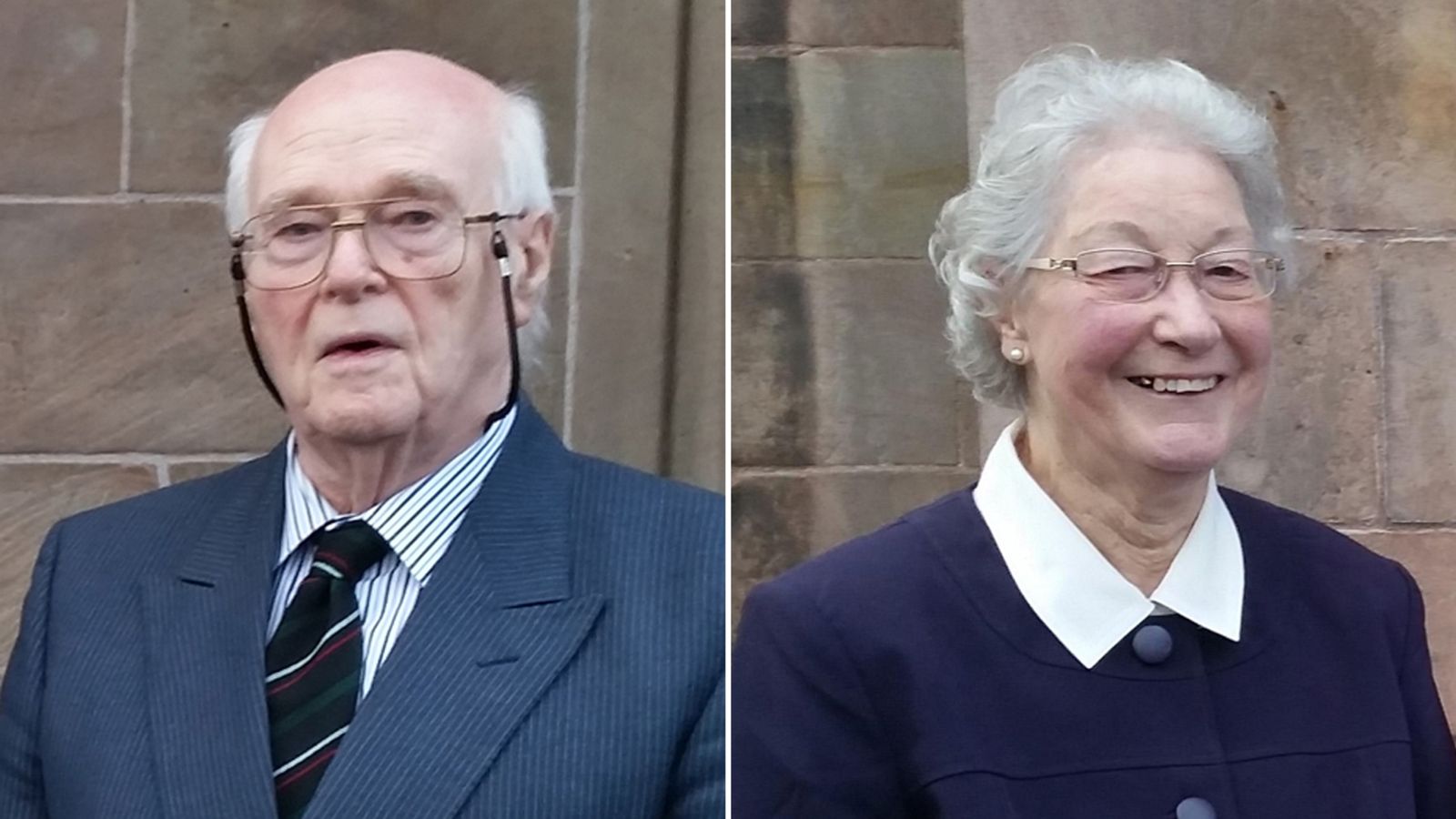The deaths of Marjorie and Michael Cawdery, both 83, who were stabbed to death in their home in 2017, were “entirely preventable”, an inquest has found.
Coroner Maria Dougan identified a series of missed opportunities in relation to the deaths of the retired couple, who lived in Portadown in Northern Ireland.
Paranoid schizophrenic Thomas Scott McEntee pleaded guilty to manslaughter on the grounds of diminished responsibility and was given a life sentence in June the following year.
Ms Dougan has now concluded that the killings could have been prevented if police and healthcare workers had dealt differently with him in several interactions in the days leading up to the fatal incident.
Their son in law, Charles Little, said hearing the evidence about their deaths was “brutal and shocking”.
“What is really, really shocking is the utter chaos that appears to have existed in both the health service and the police, and their inability to appreciate how ill this man was.
“It was just really breathtaking how bad it was.”
He said the deaths of the Cawderys should never have happened, adding: “I still believe there is no justice when only the ill man is held accountable.”
The coroner identified four incidents that occurred prior to the killings when McEntee displayed signs of mental illness and was involved in interactions with either police or healthcare staff.
McEntee, from Kilkeel, County Down, ultimately absconded from Craigavon Area Hospital and broke into the Cawderys’ home on nearby Upper Ramone Park when they were out shopping.
When they returned to their house, he was still in the property and he killed them.
Read more:
Report finds failings that led to police data breach
Brexit damage means you can assume nothing in Northern Irish politics
Concluding her lengthy findings, Ms Dougan said: “I find on the balance of probabilities that the deaths of Michael and Marjorie Cowdery on the 26th of May 2017 in their own home were entirely preventable.”
She added: “On all the evidence before me there was a succession of omissions and missed opportunities emanating from poor communication, a lack of informed and effective decision-making on the part of police officers in the Police Service of Northern Ireland and staff in the Belfast trust and Southern trust in their contact, care and treatment of Mr McEntee.
“These omissions and missed opportunities, whilst analysed individually may not be considered grave, the combination had devastating consequences.
“I find that had these opportunities not been missed, the course of events would have been different and would have changed the outcome.”
Ms Dougan also said she was not satisfied that all the lessons from the incident had been learned by the police and Belfast and Southern health trusts.






